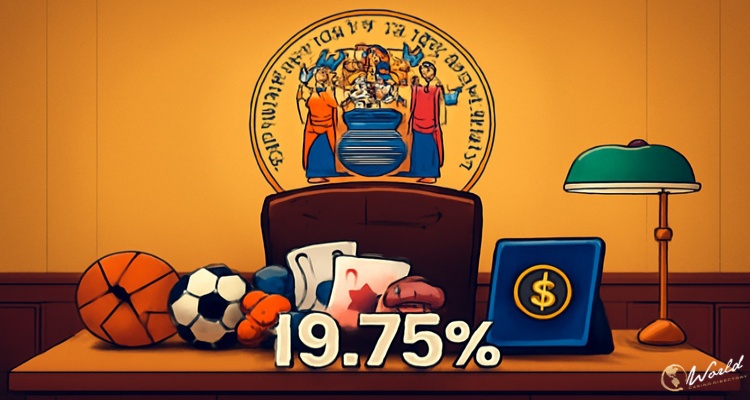In a recent budget deal, New Jersey lawmakers have decided to raise taxes on online gambling and sports betting, but at a lower rate than originally proposed by Governor Phil Murphy. The agreement calls for a tax rate of 19.75% on both online sports betting and internet gambling, down from the 25% Murphy had initially suggested in his February budget proposal, according to a report from the Press of Atlantic City. This new tax structure represents a compromise between raising state revenue and maintaining a competitive and fair environment for both operators and consumers.
State Budget and Taxation
Governor Murphy’s proposal sought to generate additional revenue to support New Jersey’s growing fiscal needs, which includes a record $58.1 billion budget for FY2026. He had anticipated that the 25% tax rate would generate approximately $402.4 million, helping to contribute to a projected $6.3 billion surplus. However, the higher tax rate faced opposition from industry groups, including the Casino Association of New Jersey and the Sports Betting Alliance, who warned that such steep increases could harm the state’s regulated gaming sector.
Currently, online sports betting is taxed at 13%, and internet gambling at 15%. The decision to scale back the tax increase to 19.75% will reduce the expected tax revenue, but still provides an increase to help fund the state’s budget. Industry officials have expressed concern that the tax hikes could drive players to unregulated offshore operators, undermining New Jersey’s progress in legalizing sports betting and online gambling.
Industry Pushback
The pushback from the gaming industry was significant. The Sports Betting Alliance, which represents major players like FanDuel, DraftKings, and BetMGM, argued that the tax increase could discourage legal betting and ultimately reduce overall state tax revenue. FanDuel, for instance, mobilized its customers to speak out against the proposed increases. Mark Giannantonio, president of the Casino Association of New Jersey, previously expressed concerns that raising taxes to 25% would drive consumers away from licensed providers and back to illegal offshore operators, from which New Jersey would see no tax benefit.
Despite these warnings, New Jersey lawmakers opted for a compromise at 19.75%, a rate that aligns closer with those in neighboring states. For comparison, Pennsylvania taxes online sports betting at 36%, while New York‘s rate is 51%. These high rates have sparked concerns about the potential for diminishing returns in other markets, raising questions about whether higher tax rates in New Jersey could have a similar impact.
Broader Tax Trends Across the U.S.
New Jersey is not alone in its efforts to raise taxes on online gambling. Several other states, including Maryland and Louisiana, have implemented or proposed increases in tax rates for online sports betting and gambling. Maryland, for instance, will raise its sports betting tax from 15% to 20%, while Louisiana will increase its rate from 15% to 21.5%. Illinois has also introduced a tiered tax system, with rates climbing as high as 40% depending on operator revenue. These changes are part of a broader trend among U.S. states aiming to boost their revenue from the rapidly growing online gambling sector.
However, some analysts have raised concerns about the long-term effects of these tax hikes. Fitch Ratings recently warned that significant increases in online betting taxes could stifle industry growth. Higher taxes might lead to increased operational costs for gaming operators, who could, in turn, pass those costs on to consumers. This has already been observed in Illinois, where major operators have introduced surcharges on bets to compensate for higher taxes.



